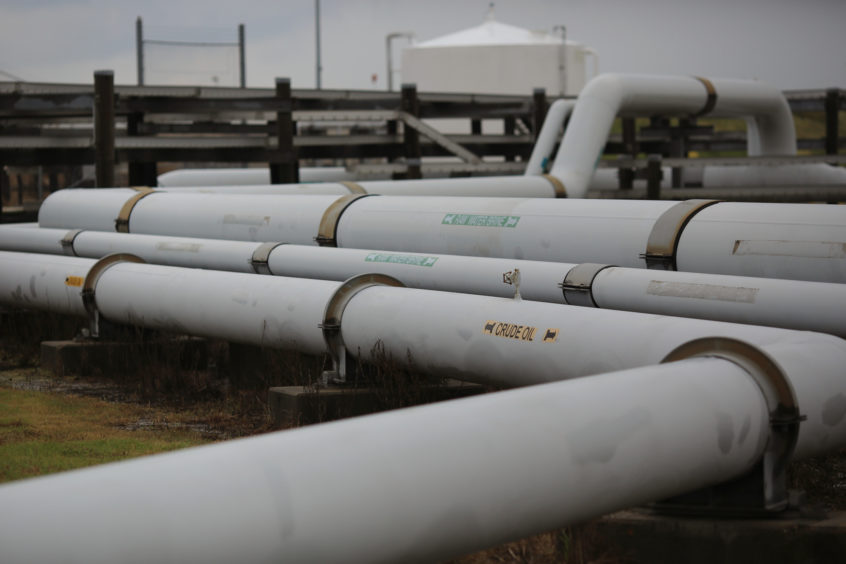
Oil headed for its third weekly loss in four as lockdowns in virus-hit China dragged on and the Federal Reserve signaled that monetary policy will be tightened aggressively to contain decades-high inflation.
West Texas Intermediate fell below $103 a barrel, and is about 4% lower this week. The world’s biggest crude importer has imposed a series of lockdowns including in Shanghai to stamp out a fresh Covid-19 wave. The curbs have cut demand for fuels and spurred economists to reduce growth forecasts.
Investors are bracing for the US central bank to hike interest rates at a rapid clip, with Chair Jerome Powell signaling two or more half percentage-point increases in comments on Thursday. The pivot has boosted the dollar, making commodities more expensive for holders of other currencies.
Oil remains more than 35% higher this year despite the recent weakness as the fallout from Moscow’s invasion of Ukraine continues to rattle markets and roil crude flows. There are calls for the European Union to ban Russian oil, matching steps taken by the US and UK. Support for prices has also come from interruptions to supplies from Libya amid a wave of protests.
“It’s a choppy market,” said Gao Mingyu, chief energy analyst at SDIC Essence Futures Co. “China’s virus measures curb on diesel and gasoline demand hasn’t been effectively lifted, weakening both futures and the spot market.”
Shanghai, China’s main commercial hub, vowed to step up the enforcement of lockdown measures, disappointing expectations that its outbreak had peaked. Reflecting the drag caused by the disruption, economists polled by Bloomberg lowered their growth forecasts for the country once again.
Prices
- WTI for June delivery dropped 0.9% to $102.89 a barrel on the New York Mercantile Exchange at 6:10 a.m. in London.
- Brent for June settlement fell 0.9% to $107.41 a barrel on the ICE Futures Europe exchange.
As part of a strategy to contain inflation, US President Joe Biden and allies have ordered major releases of crude from national stockpiles. Twelve companies were awarded all of the 30 million barrels offered from the Strategic Petroleum Reserve in the second sale, the US Energy Department said Thursday. In Asia, Japan announced an auction on Friday.
Despite the SPR sales, Morgan Stanley raised its forecasts for Brent crude by $10 for both the third and fourth quarters. The bank said that it saw market balances as “tighter than before,” with a deficit of about 1 million barrels a day persisting throughout the year, according to an April 21 note.
“Risks to prices are skewed to the upside,” the bank said. “We see a high risk that the EU will enact an import embargo for Russian crude, although it would probably be implemented with a lengthy grace period of four-to-five months.”
Oil markets remain in a bullish, backwardated pattern with near-term prices above longer-dated ones, but differentials have narrowed considerably since early March. Brent’s prompt spread – the gap between its two nearest contracts – was 39 cents a barrel on Friday, down from $3.77 on March 4.